Celebrating California’s Investments in School Nutrition Professionals
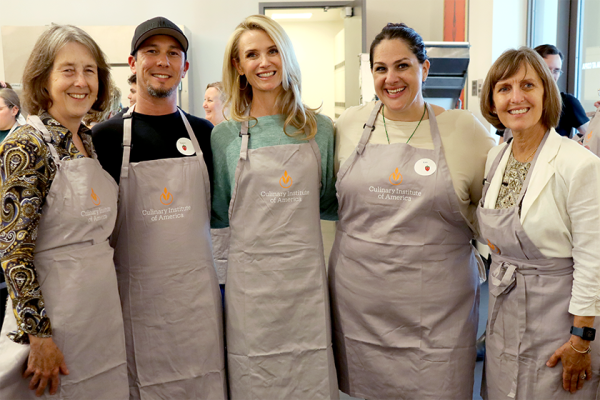
Photo: Senator Nancy Skinner, Director of Food Services for Live Oak Unified School District Sepon Istepanyan, First Partner Jennifer Siebel Newsom, Food and Nutrition Services Director for San Luis Coastal Unified School District Erin Primer, and Director of the Nutrition Services Division for the California Department of Education Kim Frinzell.
“I want you to feel really good. As great as it is to do this in these kitchens with this incredible help, they didn’t make this, right? You did. You did this.”
Erin Primer spoke to her team of school nutrition staff as they gathered around heaping plates of grilled fish, steaming pozole, and colorful salads garnished with fresh flowers. Primer is the Food and Nutrition Services Director for San Luis Coastal Unified School District. She brought her staff to Napa Valley for a two-day culinary training at the Culinary Institute of America at Copia. This training will provide her staff with the knowledge and skills necessary to prepare fresh school meals as part of California’s School Meals for All program, which guarantees every public school student with access to free breakfast and lunch at school.
For Primer’s team, who serves 8,500 meals to students each day, the chance to participate in culinary training led by professional chefs in a state-of-the-art facility is the opportunity of a lifetime. Crystal Whitelaw, program manager at the Center for Ecoliteracy, welcomed the team with a presentation on why their roles as school nutrition professionals are the key ingredient to a successful School Meals for All program.
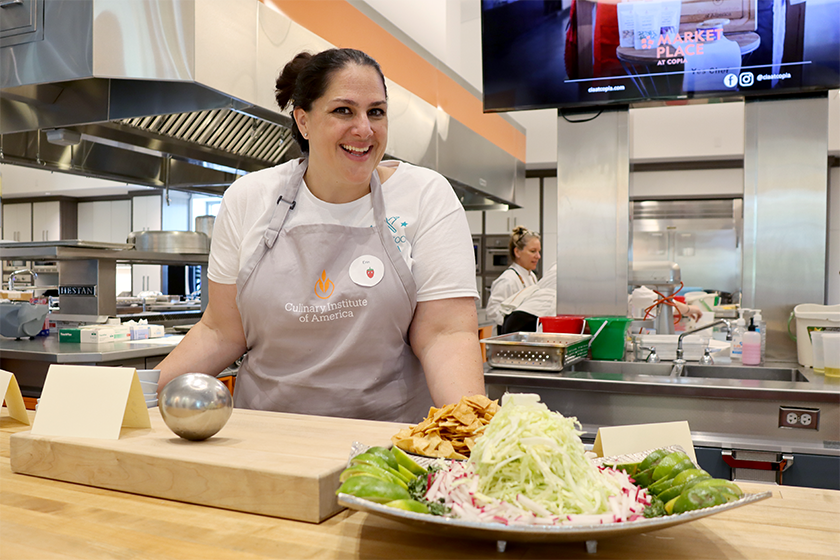
Erin Primer of San Luis Coastal Unified School District.
Across California, school nutrition professionals serve nearly 1 billion school meals each year. Most, however, have never received culinary training. Job training usually focuses on food safety and serving guidelines. As California embarks on its second year of the School Meals for All program, more students are eating school meals and schools are working to meet this increased demand while evolving their menus to provide more locally-sourced, freshly-prepared meals that students want to eat.
California’s $750 million investment in the Kitchen Infrastructure and Training (KIT) program made this event possible. With the adoption of School Meals for All, California created this complementary program to support schools in upgrading kitchens, purchasing equipment, and training staff – all in the service of improving school meals for students. The Center for Ecoliteracy advocated for the KIT program to provide school nutrition professionals with proper training and equipment to serve more locally-sourced, freshly-prepared school meals.
On the first day of the training, the Center for Ecoliteracy welcomed First Partner Jennifer Siebel Newsom and Senator Nancy Skinner to join the hands-on training, as staff sliced and diced onions, chopped potatoes, and learned to julienne jicama. They praised the team for their commitment to nourishing students and providing more freshly-prepared meals.
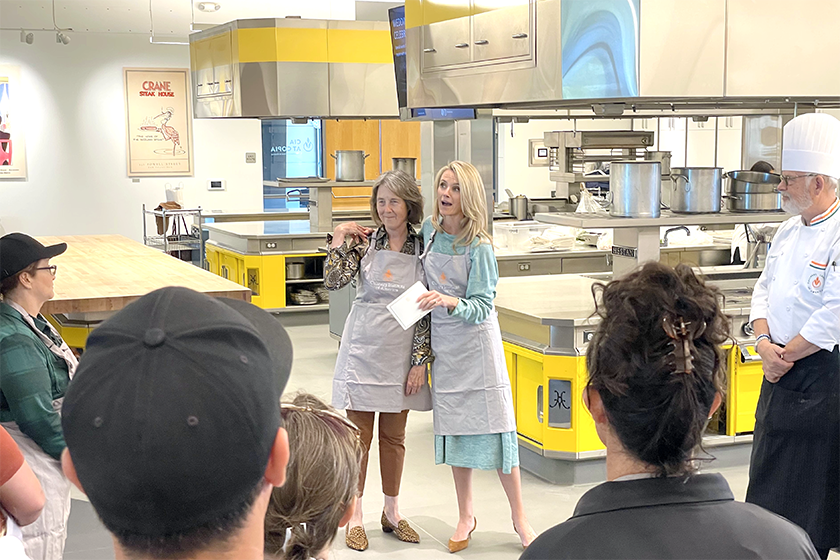
Senator Nancy Skinner and First Partner Jennifer Siebel Newsom welcome school nutrition staff to the Culinary Institute of America training kitchen.
“California’s school food and nutrition staff are essential to feeding millions of public school students,” said First Partner Jennifer Siebel Newsom. “Which is why I’m so proud of our unprecedented investment in school kitchen infrastructure and best-in-class culinary training so school food service workers across the state can build sustainable careers and support our ongoing efforts to bring delicious and nutritious scratch-cooked meals to California students.”
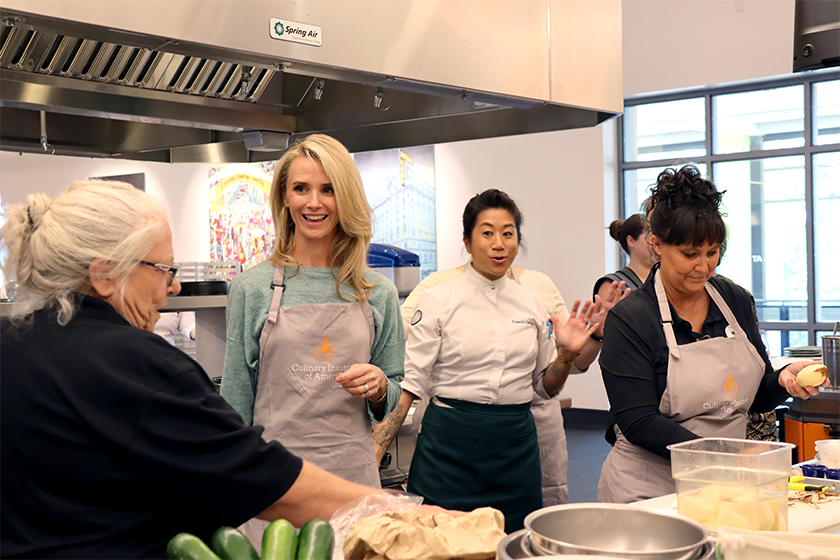
First Partner Jennifer Siebel Newsom joins school nutrition staff to chop potatoes.
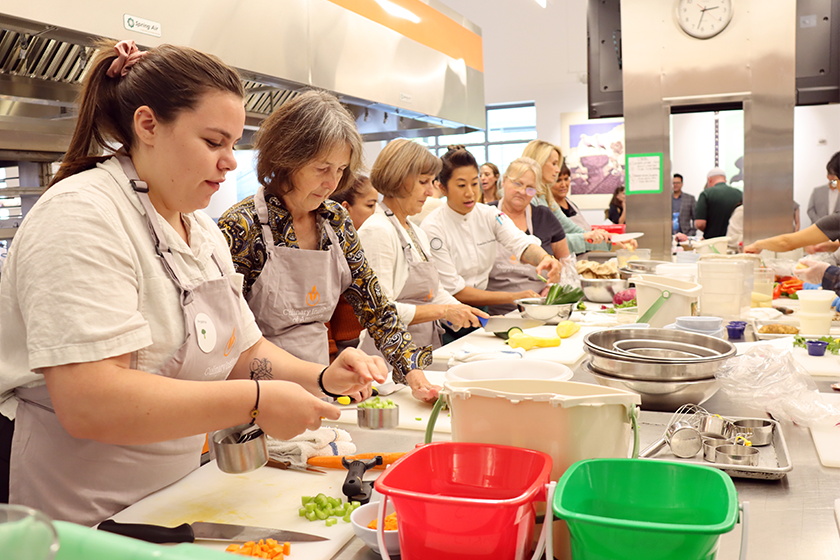
Senator Nancy Skinner practices knife skills with school nutrition staff.
“California was the first state to offer two free meals a day to all public school students, and I was proud to lead that initiative,” said Senator Skinner. “The state’s Farm to School program and Kitchen Infrastructure and Training program are building on this groundbreaking achievement and expanding school meals prepared onsite with fresh, locally sourced ingredients. This event showcased what’s possible for school meals.”
The training was led by Culinary Institute of America Chefs Rosalyn Darling and Michael Skibitcky. They stressed the importance of mise en place and demonstrated correct knife skills. “This is my first culinary training,” said Shannon Copeland, a lead cook at Live Oak Unified School District. “I’ve been with the district for 11 years.”
By the end of the two days, the staff had learned everything from how to grill fresh fish to new techniques for slicing fruits and vegetables. Stephanie Macias, a member of the San Luis Coastal Unified staff, said, “I can cut vegetables to look more enticing to students. Something as simple as cutting a cucumber the right way is huge.”
San Luis Coastal Unified students can look forward to seeing vegetable curry with coconut rice; local quinoa from Kandarian Organic Farms; and a melon, citrus, and jicama salad on their lunch trays this school year.
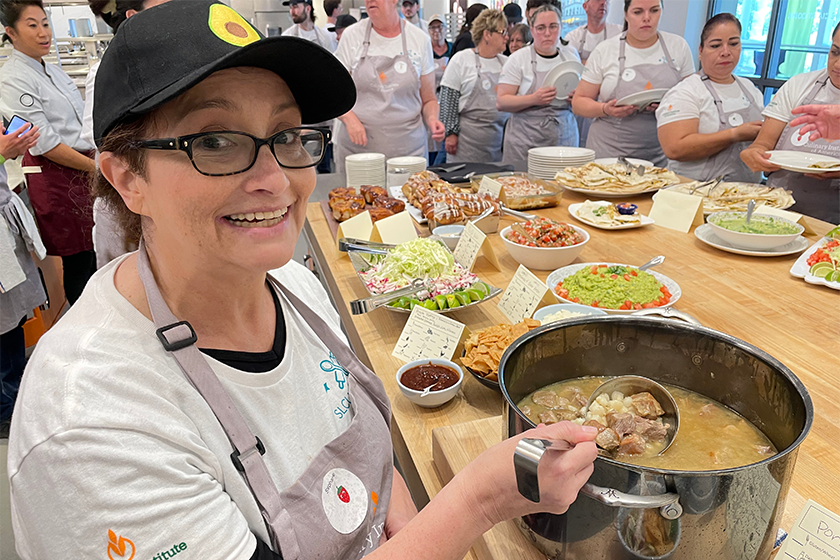
Stephanie Macias shows off her pork pozole.
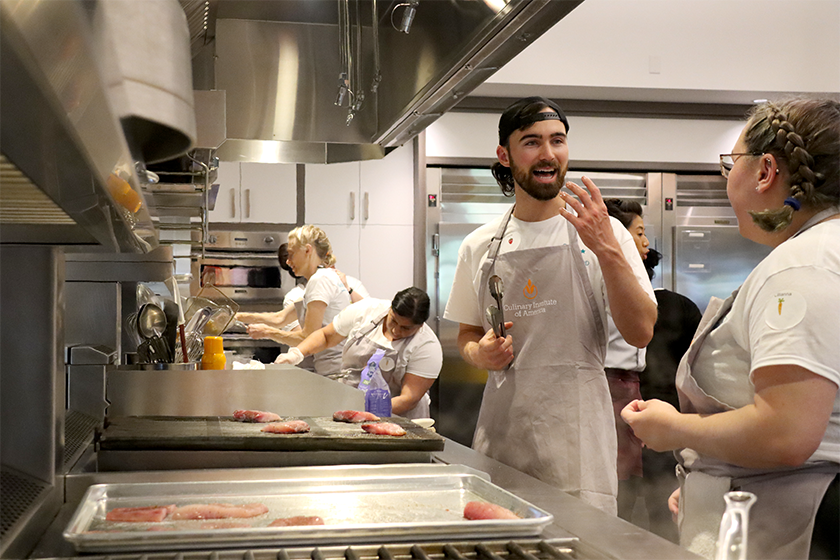
Creating crosshatch grill marks on fresh mahi.
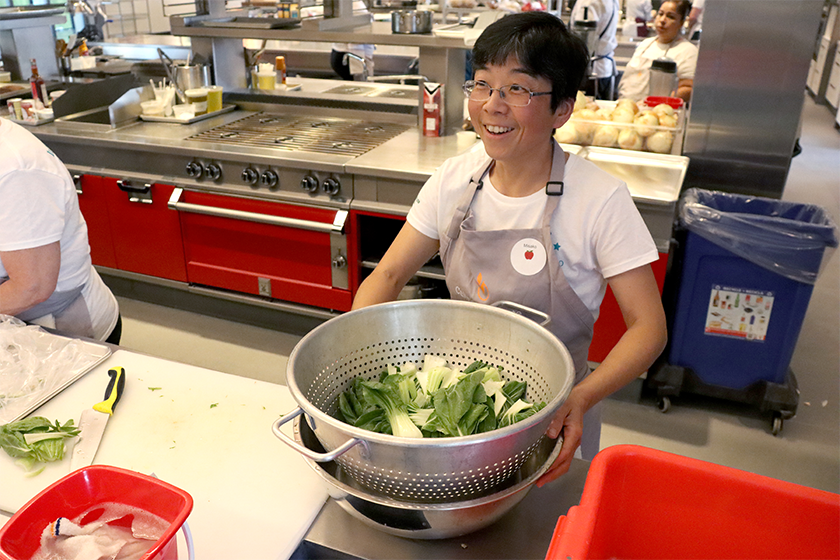
Washing bok choy for a vegetable stir fry.
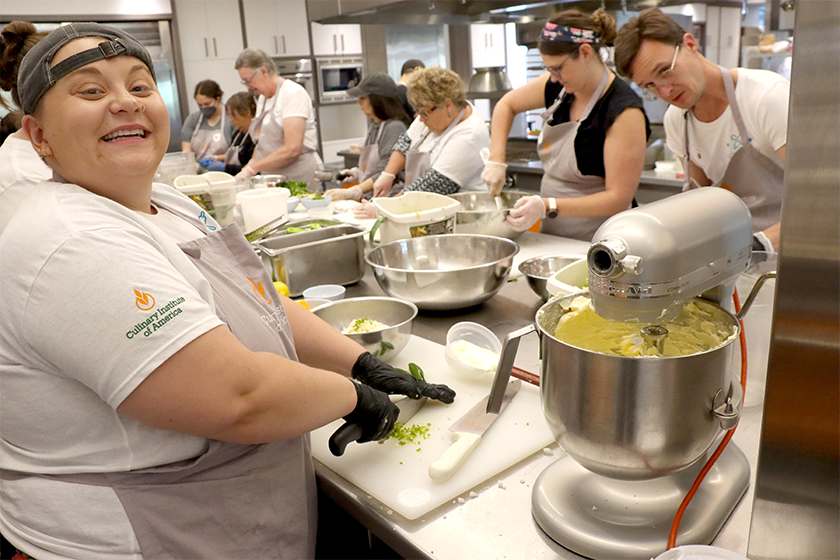
Dicing peppers for a sauce.

